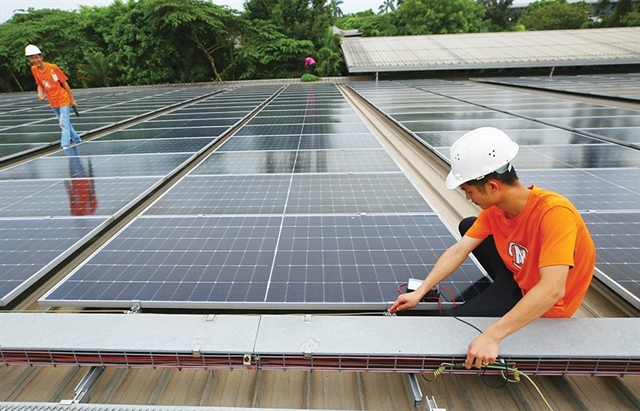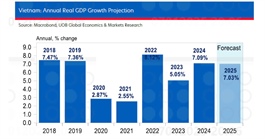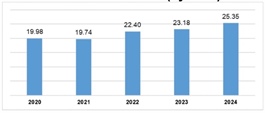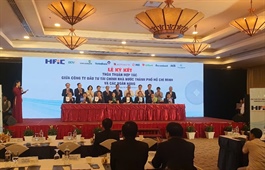Energy issues to be handled promptly
Energy issues to be handled promptly
The Vietnamese government is continuing its drive to ensure sufficient power supply in 2025 as well as solutions for renewable energy initiatives.

Vietnam’s power planning has faced struggles in implementation, Photo: Le Toan |
Minister of Industry and Trade Nguyen Hong Dien said last week that the demand for electricity of businesses and the economy in the coming years will be substantial.
“Electricity supply must be guaranteed to reach 11 per cent or more. This is a great pressure in the context of many large power sources being behind schedule. It’s necessary to ensure electricity supply in 2025, and do not let the imbalance of electricity supply and demand occur in any situation,” he said.
The Ministry of Industry and Trade (MoIT) is drafting amendments to the Power Development Plan VIII (PDP8) for submission to the government by the end of February. This comes as Prime Minister Pham Minh Chinh requested a list of which entities and individuals are accountable for delays in completing the implementation scheme for the PDP8.
The plan was issued in May 2023, but the scheme to implement it was not issued for almost a year. Delays in implementing power source and grid projects continue to prolong operational progress, affecting the goals of sufficient power supply and socioeconomic development. These difficulties require adjustments to the PDP8 to ensure that it is consistent with the actual situation.
Meanwhile, the MoIT has reported to the government on the plan to implement a resolution on removing obstacles for renewable energy projects. In particular, those with problems related to land procedures will be allowed to go ahead according to regulations, and the implementing unit will be the provincial people’s committee.
For ventures with problems related to mineral reserves, irrigation, and forest land, the province will coordinate to evaluate, resolve, and report issues beyond its authority. For those that have not completed construction acceptance, they will also be allowed to complete the procedures.
Minister Dien said the implementation of the renewable energy development policy is unprecedented, experience is lacking, and the legal system is incomplete, so the implementation process has still resulted in a number of violations according to the Government Inspectorate. “Therefore, the ministry has proposed six solutions or directions to remove and handle difficulties for projects such as allowing additional planning, adjusting planning, and correcting procedural violations,” he said.
According to a conclusion issued by the Government Inspectorate in 2023, the MoIT was found to have made mistakes in consulting on applying the feed-in tariff (FiT) mechanism to solar power projects. As a result, 14 of them were incorrectly granted the FiT rate of 9.35 US cents per kWh for 20 years.
In a report sent to Deputy Prime Minister Nguyen Hoa Binh regarding the resolution of issues with renewable energy schemes previously under inspection two weeks ago, the MoIT proposed that Vietnam Electricity and developers reconsider eligibility for the incentivised FiT rates.
The conclusion showed that, in addition to the FiT misapplication, the MoIT had authorised the addition of 154 solar projects totalling 13,837MW in capacity to the PDP8 without required legal justification. Over 120 of these wasted public resources by contributing significantly to an imbalance in the power system and power sources.
According to statistics, the scale of projects with preliminary investment is up to about $13 billion, accounting for nearly 13 per cent of the capacity and about 6 per cent of the electricity output of the entire power system. Therefore, the delay in putting them into operation not only causes waste, but can also cause the risk of collapse, loss of payment ability, and inability to repay bank loans.



























